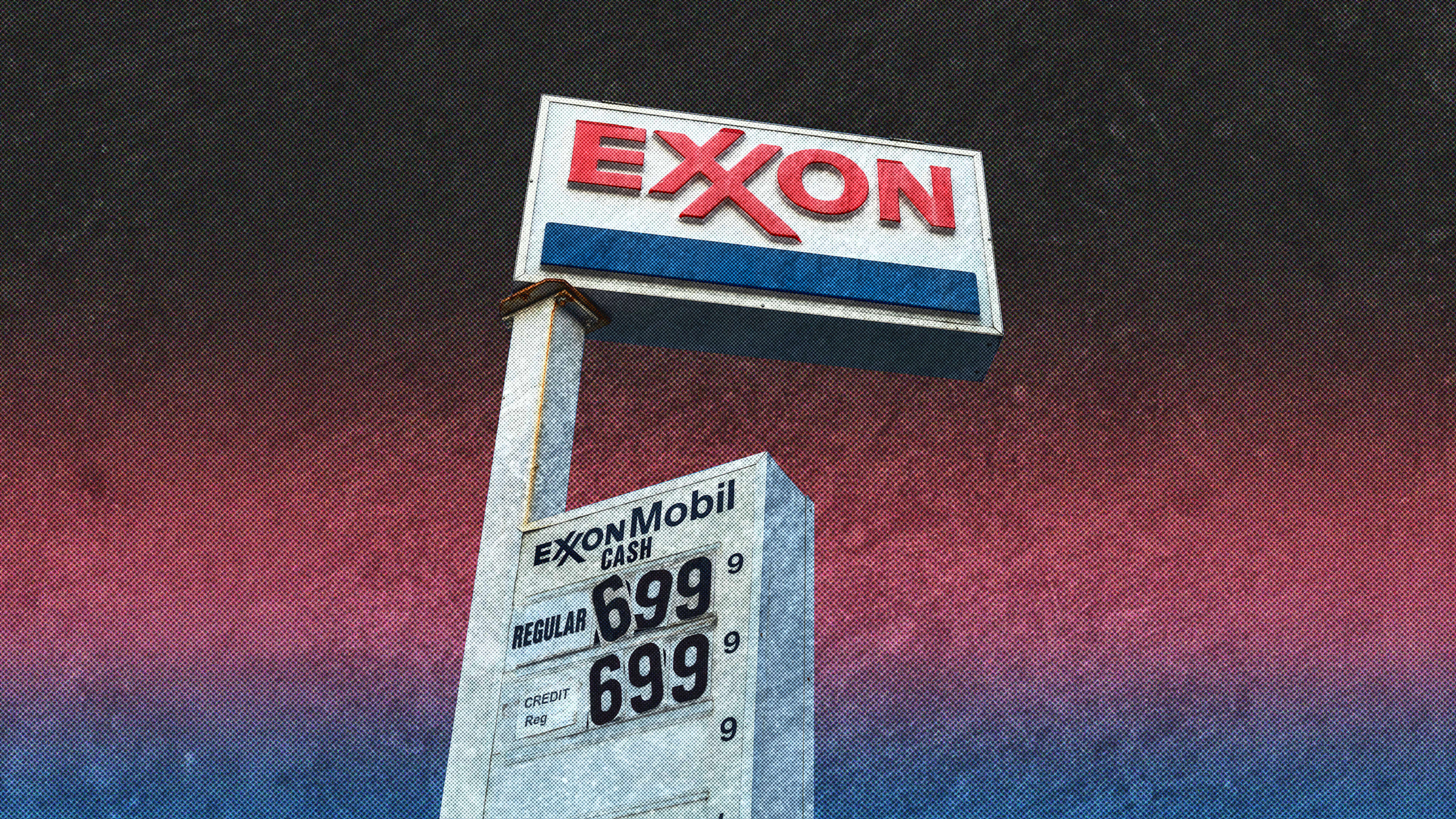Six months after the activist hedge fund Engine No. 1 helped get three new members voted onto ExxonMobil’s board—with the goal to help the company focus on the existential risks of fossil fuels—the oil company has announced an “ambition” to reach net zero emissions by 2050. But if you just saw the headline, you would miss the fine print. The commitment is to reach net zero “in its operations.” But almost all of the emissions that the company is responsible for come from burning its products. Those emissions aren’t included.
Companies with net zero goals—meaning that they’ll reduce emissions, and then offset the emissions that remain—vary wildly in their ambition. In the case of ExxonMobil, one of a relatively small group of companies responsible for the majority of greenhouse gas emissions on the planet, it’s hard to argue that the goal is credible. CEO Darren Woods says that the company is “committed to playing a leading role in the energy transition.” But its net zero goal is disconnected from the reality of climate science, which suggests that the entire world will need to reach net zero emissions by 2050 at the latest; by some calculations, countries may collectively emit so much by the end of this decade that we won’t be able to keep global warming below the 1.5-degree Celsius limit to avoid some of the worst climate impacts. In 2050, ExxonMobil plans to still be selling oil and gas.
The company limited its goal to “Scope 1” and “Scope 2” emissions, those that come directly from its own operations and the energy used to power those operations. But around 85% of its total emissions come from customers using its fuel. These so-called Scope 3 emissions, which include the pollution from up and down the supply chain, are usually the biggest source of emissions for any company, and any goal that avoids them is weak, say climate scientists. But it’s especially a problem for an oil company like ExxonMobil, which says that it emitted around 762 million metric tons of CO2 in 2020, 650 million tons of which were Scope 3 emissions.
In its “advancing climate solutions” progress report, ExxonMobil argues that the world still depends on fossil fuels—which is obviously true—and that if it reduced production, customers would buy oil from other producers who might not be using methods that are sustainable.The company is correct that larger systemic changes need to happen to wean the world off oil, but its investment in that transition—which consists of hydrogen and biofuels—only involves a small percentage of the amount of money the company spends on oil and gas exploration.
Some other fossil fuel companies have net zero pledges that do account for Scope 3 emissions. “BP and Shell are much more willing to talk about Scope 3 emissions from burning their products, which is a key ingredient of being more credible in talking about net zero,” says Kathy Mulvey, the accountability campaign director for the nonprofit Union of Concerned Scientists. “But there are still really important gaps there.” One challenge is the fact that many companies plan to offset their emissions in ways that may be impossible: Shell, for example, would need to plant an area of trees roughly the size of Italy by 2050 to offset its emissions. Occidental Petroleum plans to suck carbon out of the air to offset its Scope 3 emissions, and though that technology exists, it hasn’t yet been proven at a large scale.
Other companies are going further: Orsted, a Danish energy company that used to produce oil and gas, is phasing out fossil fuels entirely and becoming a renewable energy utility (and working to reduce Scope 3 emissions in detail, including in the steel used to make its wind turbines). That basic shift is necessary, Mulvey says. “Even the International Energy Agency is saying that we need a sharp, rapid turn away from fossil fuels to limit climate change,” she says. “So our energy system of the future can’t be fossil dependent.”
At ExxonMobil, investors are likely to keep pushing hard for the company to take the next step to consider Scope 3 emissions, and the company is likely to continue to resist. “Investors have been talking for a while with ExxonMobil about a ‘Kodak moment’ —companies that get left behind in major technological and societal transformation,” she says. “What ExxonMobil has done really well for many decades is to find and dig up oil and gas. So I don’t know that the corporate leadership and the corporate culture is in position to respond to that demand, and I’m sure that that’s a big part of what the new directors are seeking to accomplish inside the company.”
Recognize your brand’s excellence by applying to this year’s Brands That Matter Awards before the early-rate deadline, May 3.
